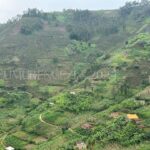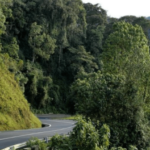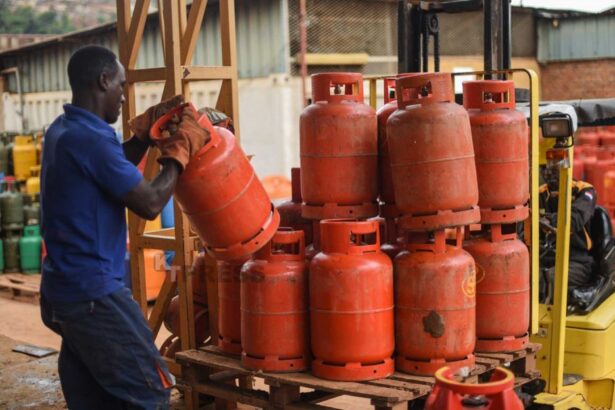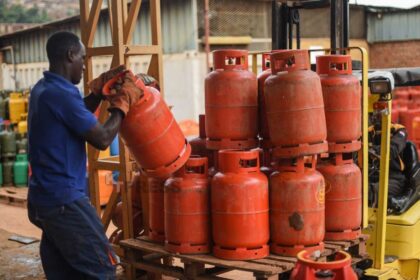Civil Society Organizations have been urged to take the lead in designing and thoroughly implementing measures aimed at mitigating climate change effects and ensure more resilient communities.
The call was made on Thursday 21st October following the presentation of research findings on the role of Civil Society Organizations (CSOS) in the implementation of National Determined Contributions (NDCS) during an event that took place at the headquarters of Tubibe Amahoro (TA) translated as ‘Sow Peace’ in Karongi district, Western Province.
TA is Rwandan non-governmental organizations striving for a more equitable society through ensuring that fundamental rights and laws are protected and enhancing environment preservation efforts in four districts of intervention including Karongi, Burera, Ngororero and Rutsiro districts.
The research which was also carried out by TA, was conducted in the four aforementioned districts in partnership with the University of Rwanda College of Agriculture, Animal Sciences and Veterinary Medicine (UR-CAVM).
- Advertisement -
The research aimed at assessing the effects of climate change, factors contributing to climate change and come up with recommendations on needed actions to develop climate change resilience in collaboration with relevant stakeholders.
The Government of Rwanda has devised a number of policies and institutional responses to support citizens adapt to climate change and climate variability. Some of the key policies and programmes include the ; the National Adaptation and Programmes of Action (NAPA), the Comprehensive African Agriculture Development Programme (CAADP), the National Fund for Environment in Rwanda (FONERWA), Green Growth Strategy, the National Strategy for Transformation NSTI Seven Years Government Program (2017-2024) as well as the National environment and Climate Change Policy.
Despite the above policies and good practices implemented by the Rwandan Government, issues such as deforestation, landslide, soil degradation, soil erosion and air pollution persist in different parts of the country. This prompted the research into cooking technologies, energy supply and demand, and current environmental and climate change issues in the districts of Burera, Karongi, Ngororero and Rutsiro.
The research also sought to investigate biomass energy supply and demand as well as ascertaining citizens’ attitudes and perceptions towards building resilience to climate change.
As per findings of the study, 53 percent out of 400 respondents confirmed that they had heard of climate change while 47 percent stated that they were unfamiliar with the subject. To this end, TA via existing networks including the Rwanda Climate Change Development Network (RCCDN) and UR-CVM called for improvement of community awareness about climate change, its impact, mitigation, and adaptation approaches.
Among others, deforestation and landslides were pointed out as the most serious climatic concerns in the study area with 87.25% and 89% respectively.
The research also established that there is limited awareness around NDCs among rural communities, limitations in Citizens’ Consultation on Climate Change Policy Planning and Implementation as reported by 91% of respondents.
Other areas of concern include the widespread use of open firewood stoves or three stone stoves for cooking or boiling drinking water, limitations towards enhancing wetland preservation, forest management, water management, limitations in the promotion of waste management system to reduce greenhouse gas emissions and limited public awareness on biosafety through initiatives involving the community, policy makers and the private sector.
Need for friendly cooking technologies
The research established that firewood is usually accessible as evidenced by 69.7% of respondents, and to some extent available in the community through gathering in bushes, and woods (62%).
It was established that households that utilize inefficient cooking technologies and do not own a woodlot spend an average of Rwf600 (12kgs or 4 pieces of wood times Rwf150) per day on wood purchases, thus making Rwf18,000 per month and rough estimation of annual cost is Rwf216,000.
However, it was observed that a household that uses Improved Cooking Stove (ICS) utilizes a third of fuel consumption, thus spending Rwf6,000 per month with a saving of Rwf12,000 and Rwf144,000 per annum.
The money saved is allocated to other household needs and including Community Based Health Insurance known as Mutuelle de Santé, scholastic materials, contributions to saving and lending groups and purchase of other household items.
The majority of surveyed households (92.6%) use traditional cooking stoves, 4.7 percent use various models of improved cooking stoves including clay charcoal stove, metal charcoal stove, pipe stove, Tekavuba, Canamake, Canarumwe stoves among others while 1.5 percent use Liquefied Petroleum Gas (LPG).
Considering the fact that CSOs work closely with communities in different areas, the research recommended them to maintain collaboration with different stakeholders to mitigate climate change effects and become proactive in educating citizens on biodiversity protection.
CSOs were also urged to engage in research for evidence-based advocacy if they are to significantly inform or influence the policy.
Among others, CSOs were reminded of their critical role is supporting vulnerable groups especially women to challenge customs and beliefs which perpetuate unequal gender relations, conduct climate change advocacy and comprehensive research on appropriate improved cooking stoves taking into account the amount of saved wood, cooking habits, raw materials for improved stove manufacturing accessible in each location and household income among others.
Local leaders are also recommended to play role by extending awareness of climate change mitigation and adaptation strategies to safeguard environment and work towards sustainable community livelihoods.
The research recommended members of the community to plant more trees, adopt the use of energy-saving cooking stoves as well as other improved cooking technologies in order to relieve the problem of deforestation, indoor air pollution, eye diseases, soil erosion and landslides.
Community members are also urged to improve their usual practices around waste management.
Commenting on research findings, Pierre Celestin Kabano, the Executive Secretary of Tubibe Amahoro said that the research aimed at establishing sources of cooking fuel and challenges hindering adoption of environment friendly cooking technologies.
“The use of improved cooking technology is still low as most of areas of study are located in rural areas. The majority of residents use traditional cooking stoves but they need to stick to energy-saving stoves which help users to spend little money and save time for other income generating activities, “he said.
“Civil Society Organizations need to draw attention to this alarming situation to extend awareness to ensure climate change resilient communities through collaboration with the Government and the private sector,” he added.
Faustin Mvuniyingoma, the coordinator of RCCDN commended findings of the research and stressed the need for concerted efforts between all stakeholders to mitigate climate change.









